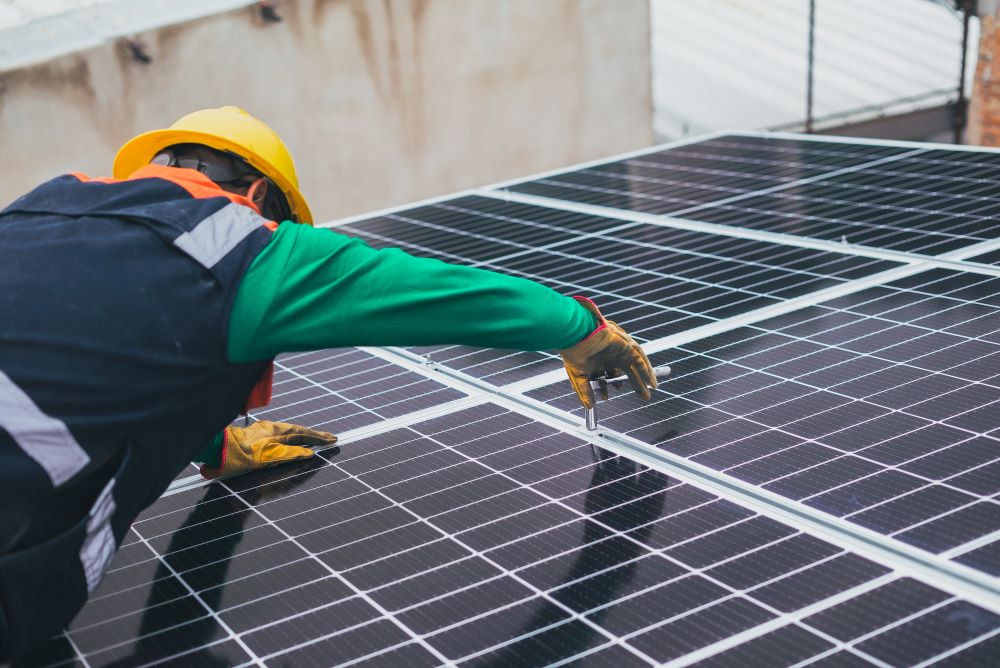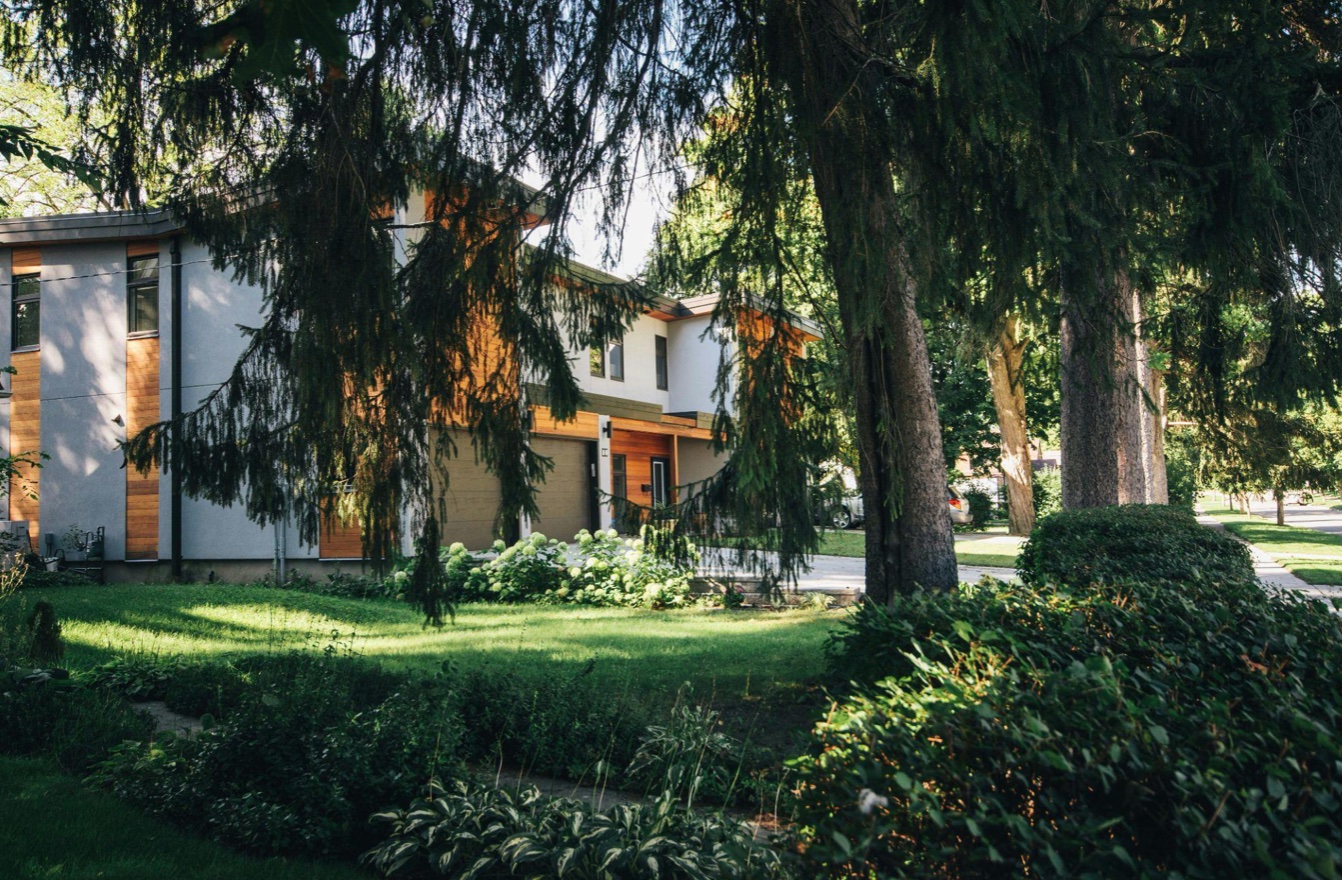As a homeowner, it’s within reach to be environmentally responsible while respecting legal boundaries.
When motivated to take climate action, a natural inclination is to start at home. Making eco-friendly upgrades to your residence is a great way to lower your carbon footprint. From lawn care to refrigerator use, there are ways to significantly reduce your contribution to carbon emissions. However, homeowner regulations may stand in the way of these upgrades. It’s important to navigate the legality of your eco-conscious renovations before investing your time and resources. This way, you can remain compliant and work on creative solutions to do your part for the environment.
The Importance of Balancing Eco-Consciousness and Legality
A healthy compromise between eco-conscious efforts and legal compliance is needed to successfully make a change. Embracing sustainable practices, such as solar energy harvesting, water conservation, organic fertilizers, and native plant landscaping, can offer massive benefits for the environment but also the well-being of residents. Working with your homeowners’ association (HOA) and local government will ensure you are informed on regulations. This way, you can seek exceptions when needed, mitigate potential conflicts, and avoid costly mishaps. You can work together to maintain a vibrant community with your residence as a model of how environmental living can be.
Understanding Eco-Friendly Practices as a Homeowner
To make eco-conscious changes to your home, you must be aware of the options available to you and how they impact the environment. This will depend on your type of home, budget constraints, and local legislation.
Outdoor
Eco-friendly lawn care is a great place to start. When updating your landscaping, opt for native plant species. They require less water, support local wildlife, and are less invasive. You can even look into replacing traditional grass with lawn alternatives like clover, moss, creeping thyme, and xeriscaping, or the practice of using a combination of rocks and other natural elements to create a beautiful landscape. These creative lawn solutions require little to no trimming, are resistant to weeds, and use far less water. Check out what alternatives your region supports and whether or not your HOA, if applicable, allows this type of landscaping.
Using organic fertilizers and weedkillers, like vinegar or manual removal, can also be powerful for environmental action. You can reduce harmful chemical runoff leaching into the soil and water supply. Consider compounding all the water you are saving with further water conservation techniques like irrigation and rainwater collection systems. If extensive irrigation infrastructure or rain barrels aren’t allowed, you can still adjust your watering schedules to minimize waste.
You can also consider if solar panels are a good investment for your home, by evaluating your energy needs. Some local governments and the federal government may even offer tax incentives for installing solar panels on your roof or other owned property. After all, U.S. residential energy use accounts for 35%, about 1.42 trillion kWh, of all electricity usage. Mitigating this reliance on fossil fuels for electricity is crucial to make a nationwide impact.

Indoor
You can also opt to lower your energy bill by using smart thermostats and regulating your electricity use. Smart devices, energy-efficient windows, LED lightbulbs, and proper insulation are all lower-cost solutions that help the environment. Plus, they are generally accepted as home upgrades by HOAs and regulatory boards. You can also switch out your showerheads and faucets to low-flow fixtures to save water, set up a composting bin for your kitchen waste, and use natural cleaning supplies to reduce chemical exposure.
If you still use certain chemicals, be mindful of your chemical storage. Examine containers for leaks, make sure everything is labeled correctly, and avoid storing in damp areas that could damage pressurized containers. This prevents chemical leaks into the soil, as well.
Navigating HOA and Local Regulations
While your situation will depend on your specific HOA and locale, there are common regulations imposed by these organizations. HOAs typically have guidelines regarding exterior modifications to your home, including landscaping and architectural upgrades. Government organizations will often have local zoning and building codes, dictating what you can and can’t do on your property — including fence heights, landscaping, and building smaller structures on your property.
While most organizations will advocate for eco-friendly upgrades, there are some potential conflicts between eco-friendly practices and existing rules that you may run into. HOAs, for example, strictly prohibit anything “unsightly,” which can be subjective — and often include solar panels, rain harvesting barrels, or certain types of landscaping. HOAs may restrict specific plant species, even if they are native or eco-friendly. Some HOAs may even prevent you from maintaining your lawn altogether.
Drought-prone areas may lead local governments to enforce water restrictions. Harvesting rainwater or extensive irrigation may conflict with these local limits. Construction may be prohibited or restricted to certain times and areas due to noise and air pollution. It’s always best to run by any ideas that affect your community by your HOA or local government.
Possible Legal Disputes and Resolutions
The legal aspects of green home renovations often require jumping through a few hoops. However, it’s worth it to engage in eco-conscious living and serve as an example for your community. Look into obtaining permits for any construction or demolitions you have planned, and notify HOAs and local governments of plans regardless.
If conflicts arise, you can have an open discussion with lawmakers and your neighbors, possibly banding together to lobby for change. You will often be able to find common ground this way and reach a compromise. If disputes persist, you can seek legal advice.
The Future of Homeownership
As a homeowner, it’s within reach to be environmentally responsible while respecting legal boundaries. With informed decision-making and open communication with your HOA and local government, you can live your eco-friendly lifestyle where it all begins — at home.


Join the conversation!